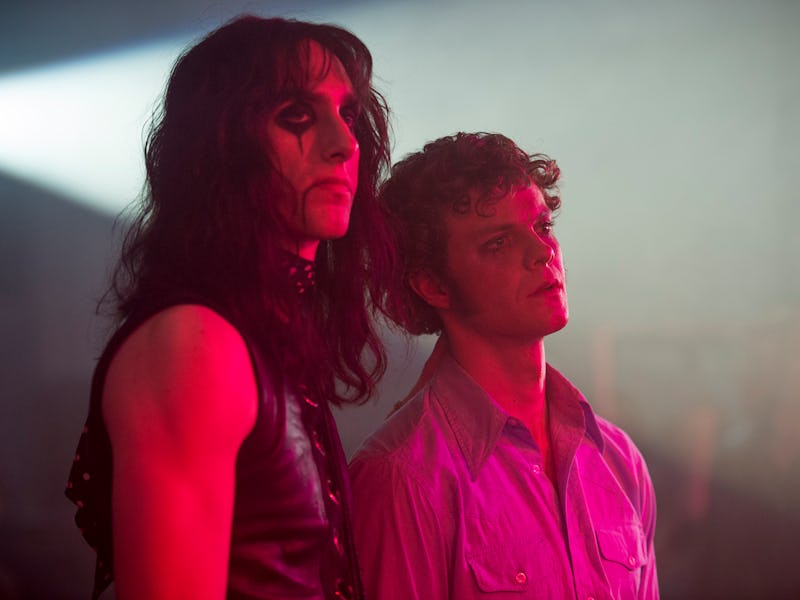‘Vinyl’ Episode 3 Crams in Punk, Rap, Soft Rock, and Alice Cooper
HBO's self-parodic rock 'n' roll circus seems to pick its spots and stop playing music history primer.

Is there nothing Vinyl can’t (read: won’t) tackle about the music scene of the 1970s? One gets the impression, from any number of rock retrospectives about the period — and so many other fetishized eras in music history — that it was a chaotic cultural moment. Rock ‘n’ roll was being intellectualized, commodified and diversified more than ever; people had money they didn’t know what to do with, and most of them didn’t spend it wisely.
And though Vinyl is, in some sense, focused on the proliferation of “punk rock” — the moment when its roots were being planted — the show insists on taking in all elements of the musical diaspora of the period. Unfortunately, it constantly risks absurdity while attempting this. While the Velvet Underground flashback in last week’s episode is still the show’s nadir, the baldfaced historical survey tactics in this week’s episode will make any viewer wish that Vinyl would picks it corners more discriminatingly.
Much of the episode is dominated, for the first time, by a real musical personality. It’s based around a series of scenes in which glam and metal progenitor Alice Cooper (played by Dustin Ingram) leads on Richie’s A&R lackey Clark (Jack Quaid) about a possible deal, and then scares the shit out of him with the trademark Cooper stage guillotine. This is the best part of the show so far, possibly, and the only good portrayal of a real-life musical figure. Though Alice Cooper actually did go solo two years later, the implication is: This money-grubbing A&R has no scruples or respect for art, blah blah. … Alice will never go solo, man! It’s a weak premise with an entertaining realization.
But this dichotomy — between art lovers and operators — becomes annoyingly central to this episode, particularly with respect to Richie. He’s portrayed as one of the only bigwig executives in the industry who “cares about music” on the show. It’s one of the sources of his bull-headedness and who-gives-a-fuck inner torment; nothing on the show, thematically, is laid on as thick as this point. So this week, Richie signs the Nasty Bits — a proto-punk band — and attends a formative New York Dolls show when no one from the industry seems to be catching onto the movement. In this episode, Terence Winter & Co. pack in the most obscure reference in the series: a shot of Sniper, the band Joey Ramone fronted in sequins as “Jeff Starship” before donning a leather jacket and joining the Ramones. Richie was there, man, as the show has to clarify over and over again.
This obsessiveness makes the show feel, more and more, like an empty pastiche. None of these moments compares to an inadvertently comic scene in which Richie’s former blues artist Lester Grimes, now a super in the Bronx projects, witnesses the seeds of rap music. That’s right, seminal hip-hop DJ Kool Herc is spinning records in the basement of his building. The old men watching may object, but Lester — whom we’ve been made to appreciate as a True Musician — understands. “Keep on, Herc,” he mutters.
Amid all the cultural moments the Vinyl writing team tries to cram in (Andy Warhol and a soft-rock Seals and Crofts-esque singing group show up here, as well), the characters are pushed out, mired in laughable melodrama and vague, archetypal existential crises. Richie and Devon’s character’s feelings of unfulfillment are expressed primarily through inevitably corny flashbacks, which take in even more historical tidbits. If Vinyl doesn’t settle down into more of a plot soon, it’s going to pan out as one of the worst HBO shows in quite a few years.